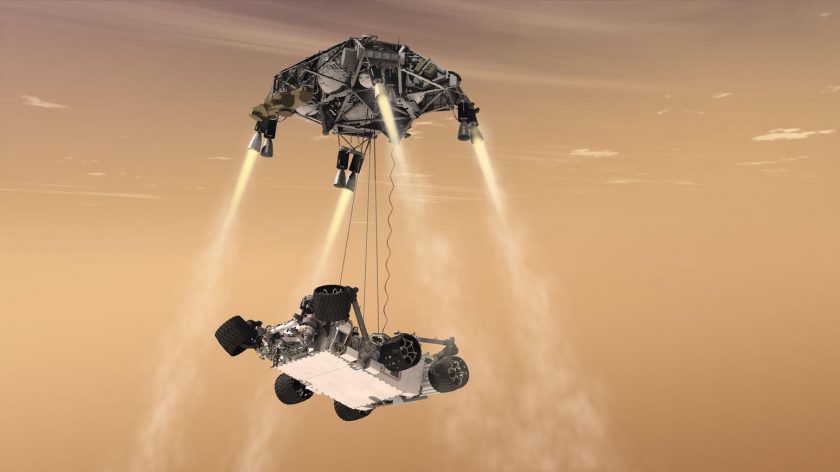The Perfect Spot
November 11, 2019

For four years, Tim Goudge made the case to send an upcoming Mars mission to Jezero Crater. On Nov. 19, 2018, NASA announced that the crater—the site of a former lake and river delta—will be the landing site for their Mars 2020 rover mission to look for signs of past life.
“It’s very exciting,” said Goudge, an assistant professor in the Department of Geological Sciences at the Jackson School. “This outcrop is one of the best exposures of a river delta that we have on Mars and it allows us an opportunity to study the record of river sediment deposition.”
NASA considered more than 60 candidate locations across the Red Planet before announcing Jezero as the winner during a public teleconference. Jezero is a 28-mile-wide impact crater on the western edge of Isidis Planitia, a plain in a large impact basin just north of the Martian equator.
Today, Jezero is an empty basin. But billions of years ago, flowing liquid water emptied into the crater. The sediment deposited by the river could preserve signs of life that might have called Jezero home eons ago. It’s the goal of the Mars 2020 mission to seek out those signs in rock and soil samples and store them so they eventually can be brought to Earth.
Goudge’s research focuses on how rivers and lakes modify landscapes on planetary bodies — including Earth and Mars. He proposed Jezero Crater as a landing site for the Mars 2020 mission in 2014, when he was a graduate student at Brown University. As the lead advocate for Jezero throughout the process, he presented research about Jezero at the first two NASA workshops assessing potential landing sites. By the final two workshops, a team of scientists had joined Goudge in making the case for the crater.
Goudge hopes to play a role in the Mars 2020 mission, with NASA planning to issue a call for mission experts at a later date.
Back to the Newsletter